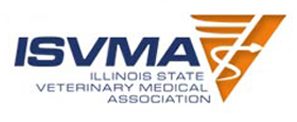Pet Nutrition-Weight Management
“Is my pet overweight?”
While weight management can be a dreaded discussion to have with your veterinarian, it a key part of your pet’s health and well-being. Obesity in pets is currently a nation-wide epidemic, and overweight pets are more likely to develop diseases such as osteoarthritis and diabetes, and to live shorter lifespans. As we all know, losing weight is more difficult than putting it on, so the best way to deal with obesity is prevention. Discuss the daily caloric requirements for your pet with your veterinarian, and implement an appropriate feeding strategy. Free choice feeding is often a problem in a multi-pet household or with a pet that is extremely food motivated. It may be a good idea to offer only meal-time feedings for your dogs and cats, and considering separation of multiple pets during mealtimes. For your exotic pets, the best way to avoid obesity is through the type and amount of food you offer. For example, alfalfa is high in fat and is best offered only to juvenile animals, while timothy hay is a great low-calorie option for adults. Also, pellets should be offered in small pre-portioned amounts, and depending on breed, are often discouraged in adult pets. Finally, exercise is essential for our pets in order to facilitate weight loss, manage a healthy weight and to promote mental well-being. Implement a daily exercise routine with your pet that is easy to maintain. Getting outside and exercising is healthy not only for your furry friend, but for you as well!!
“Which food should I buy?”
Questions regarding proper nutrition, are among the most frequent I hear on a daily basis as a veterinarian. More than ever, clients are interested in the type of food they are feeding their pets. A balanced diet is key. Commercial pet foods are specifically formulated to create a comprehensive diet, and any alternative feeding strategies need to be equally as balanced. A diet consisting of a single protein and starch source, such as chicken and rice, is not sufficient for long-term nutritional requirements. It can be difficult sifting through the many different brands and types of pet food on the market these days. Your veterinarian will be able to help you choose the right diet for your pet to live a long and happy life.
The importance of breed, species and age
Remember there are always species-specific requirements, and make sure to choose a food accordingly. Cats require certain amino acids in their diets, without which, they can develop life-threatening diseases. Also, guinea pigs require Vitamin C in their food, and need to be fed guinea pig pellets fortified in Vitamin C.
Breed is also an important consideration for diet. For example, large breed dogs have specific nutritional requirements for appropriate growth and development and if fed too much, too fast, they can develop painful skeletal diseases.
Finally, the age of your pet is also an important factor in choosing the correct diet. Puppies and kittens require more nutrients and calories in their diet than your adult pet will. Remember, your pet will grow an enormous amount in the first few months of life and will need a high calorie diet that is rich in nutrients to do so. In contrast, your geriatric pet will need very few calories and different nutrients to help support mental agility and joint health. Depending on the breed, dogs are generally considered geriatric after the age of 8 and cats are considered geriatric after the age of 10.
For the itchy pet
Allergies are becoming more prevalent, and people are wondering what ingredients to avoid in pet foods. Despite the media promoting grain-free diets and raw diets in our allergic dogs, the number one cause of food allergies or sensitivities in dogs and cats is protein. That can mean anything from chicken to salmon to peanut butter. For our pets with suspected food sensitivities, the best type of food to try is a limited ingredient food with a novel protein source. For example, if you are feeding a chicken-based diet, try switching to a fish-based diet. However, sometimes the only way to truly test for a food allergy is to use a prescription food. Talk to your veterinarian today about your itchy pet and an appropriate food trial. Please keep in mind, that food sensitivities are the least common source of allergies in our dogs and cats. If you do not see an improvement in your pet’s health after switching the diet, your veterinarian can help you with further treatment options.
Don’t forget the pocket pets!
Finally, proper nutrition is vital for our exotic pets, whether you have a snake or a sugar glider. In fact, one of the most common causes of disease in exotic pets, is inappropriate diet. Guinea pigs can develop scurvy, reptiles can get bone diseases, and birds will get vitamin deficiencies from seed-based diets. Please talk to your veterinarian shortly after adopting your new pocket pets, to help avoid these life-threatening nutritional deficiencies.
For more information on proper pet nutrition, please see the following sources below;
http://www.acvn.org
http://www.oxbowanimalhealth.com
https://lafeber.com/vet/content_types/information-sheet/
